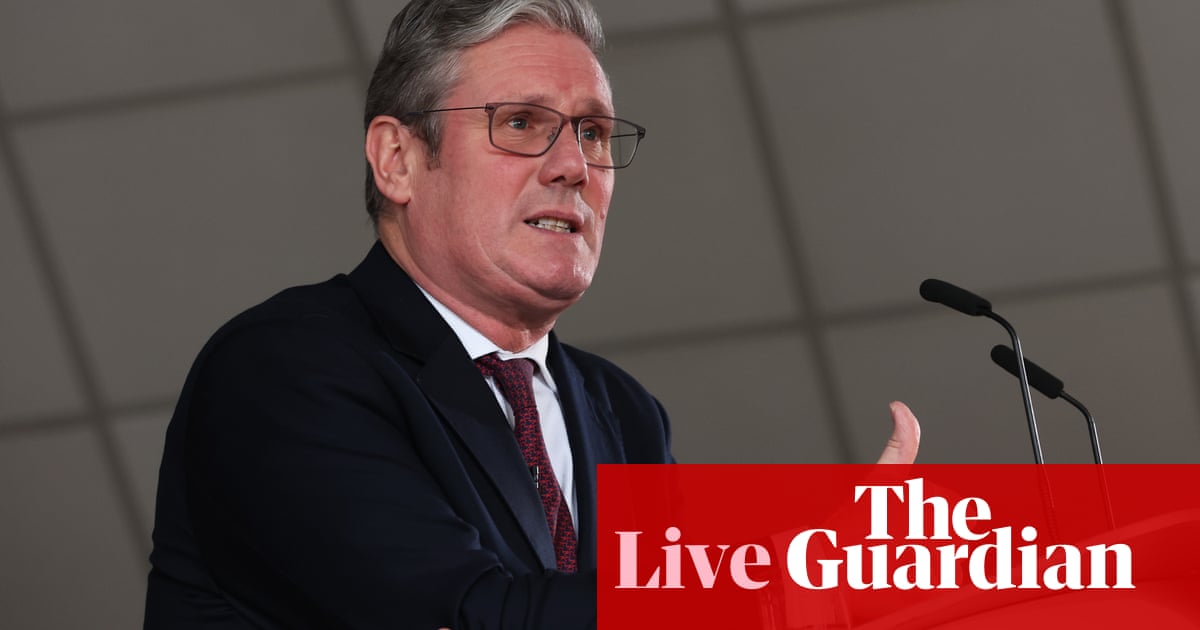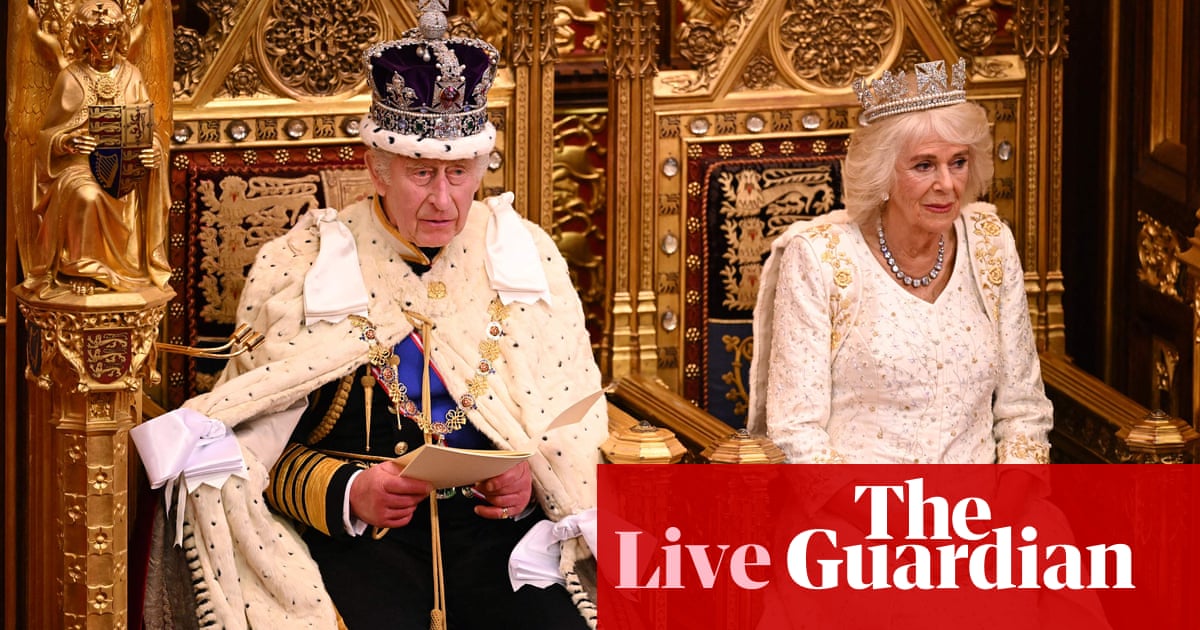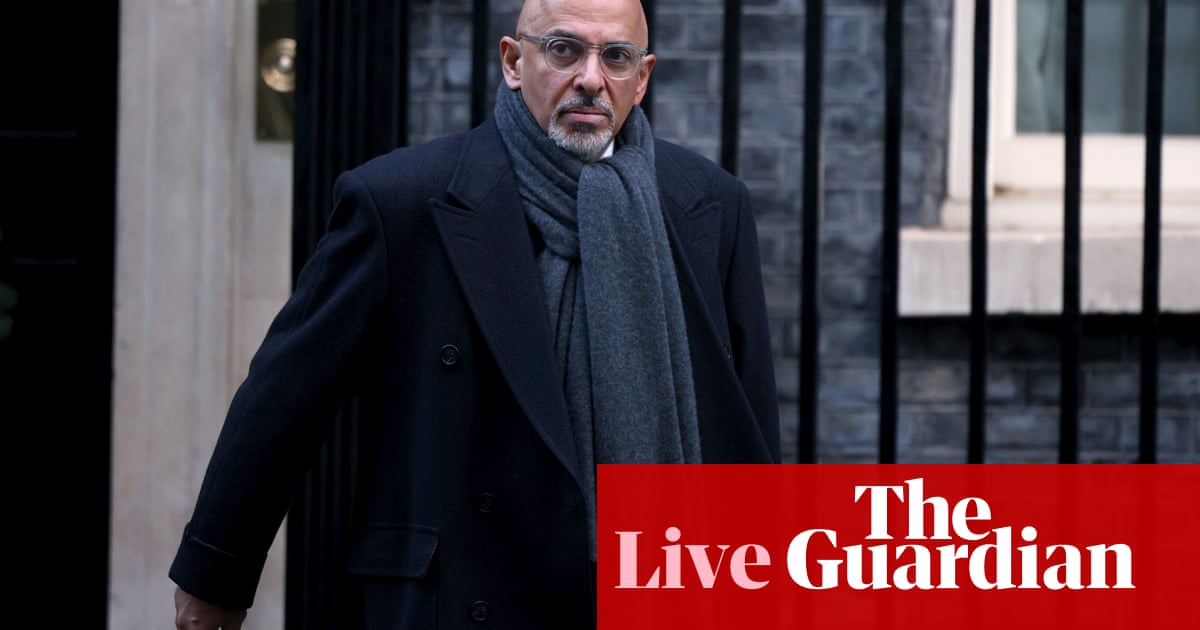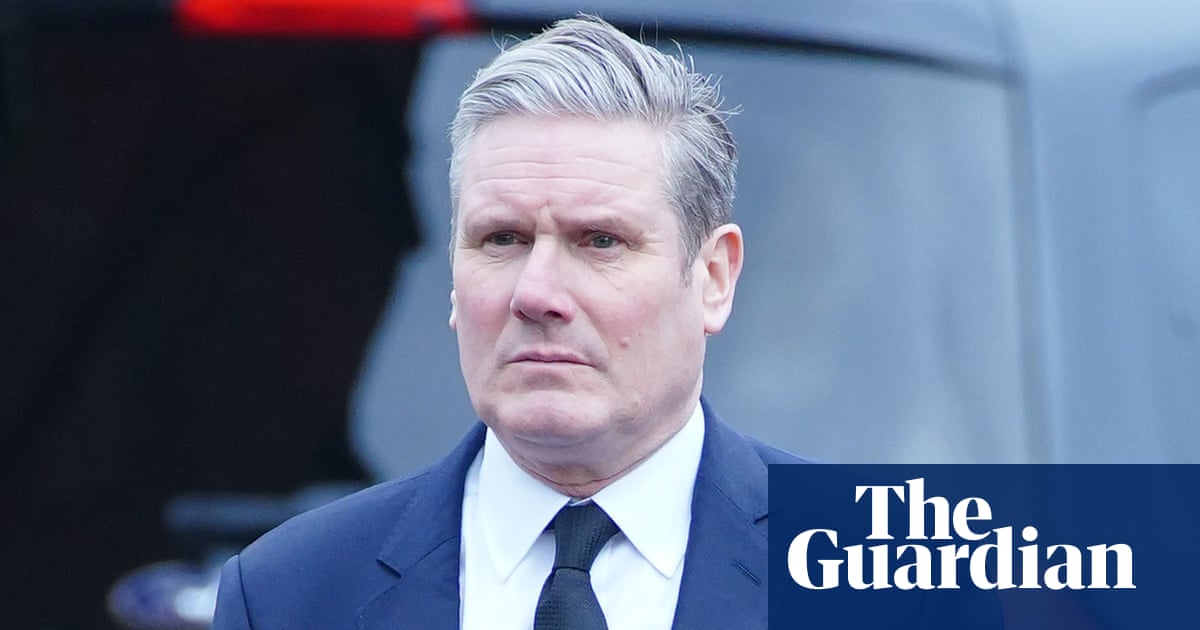
Starmer publishes tax returns
The Labour leader, Keir Starmer, has published his recent tax returns, as he pledged to do so this morning a day after Rishi Sunak became the first prime minister since David Cameron to do so.
They show he earned £275,000 in the last two years and paid £118,000 in tax.
Questioned by reporters at a Labour event this morning, Starmer also said that his plans to reverse the chancellor’s lifetime pension allowance (LTA) reforms would not exclude targeting the benefits he received as head of the Crown Prosecution Service.
The Labour leader has been accused of hypocrisy in wanting to block Jeremy Hunt’s plans to relax the tax rules on pensions for the wealthy while he reportedly benefits from a generous “tax-unregistered” scheme from his time as director of public prosecutions (DPP).
But Starmer said he did not want a “tax advantage” from the pension scheme he was involved in before he was elected as an MP, as he committed to putting himself “in the same position as everybody else in this country”.
Summary
The Bank of England has raised interest rates by a quarter of a percentage point to 4.25% in response to higher-than-expected UK inflation and signs that Britain’s economy was holding up better than feared. In a fortnight of heightened unease in global financial markets, the Bank’s monetary policy committee (MPC) voted by a majority of seven to two to increase the base rate for the 11th time in a row.
Rishi Sunak has saved more than £300,000 in tax thanks to a cut he voted for in 2016, according to an analysis of his tax records. The prime minister has paid just over £1m in tax over the past three years, most of which was accrued on the gains he has made on his US-based investment portfolio. But that figure would have been £308,167 higher had the top rate of capital gains tax (CGT) not been cut by the Conservative government in 2016.
Keir Starmer has vowed to halve violence against women and girls within a decade, setting out one of Labour’s core missions on crime as “unfinished business in my life’s work to deliver justice”. Starmer, whose speech in Stoke-on-Trent launched the second of his five “missions”, said he wanted to “imagine a society where violence against women is stamped out everywhere”.
Starmer published his recent tax returns, as he pledged to do so this morning a day after Rishi Sunak became the first prime minister since David Cameron to do so. They show he earned £275,000 in the last two years and paid £118,000 in tax.
Junior doctors in England will strike for four days between 11 and 15 April, the British Medical Association has said. Dr Vivek Trivedi and Dr Robert Laurenson, co-chairs of the BMA junior doctors’ committee, said: “It is with disappointment and great frustration that we must announce this new industrial action.
The Albanian prime minister has criticised the UK home secretary, Suella Braverman, calling the singling out of migrants from his country a “disgraceful” moment for British politics. Edi Rama, who is in Britain for talks with Rishi Sunak, said Braverman’s comments last year about “Albanian criminals” crossing the Channel in small boats, could themselves be considered a crime.
Nicola Sturgeon has said being first minister “of the country I love has been a profound honour”. Speaking at her 286th and final FMQs, Sturgeon paid tribute to those who lost their lives to Covid-19 and singled out efforts to distribute money to low income families with children as the policy she was most proud of.
Starmer publishes tax returns
The Labour leader, Keir Starmer, has published his recent tax returns, as he pledged to do so this morning a day after Rishi Sunak became the first prime minister since David Cameron to do so.
They show he earned £275,000 in the last two years and paid £118,000 in tax.
Questioned by reporters at a Labour event this morning, Starmer also said that his plans to reverse the chancellor’s lifetime pension allowance (LTA) reforms would not exclude targeting the benefits he received as head of the Crown Prosecution Service.
The Labour leader has been accused of hypocrisy in wanting to block Jeremy Hunt’s plans to relax the tax rules on pensions for the wealthy while he reportedly benefits from a generous “tax-unregistered” scheme from his time as director of public prosecutions (DPP).
But Starmer said he did not want a “tax advantage” from the pension scheme he was involved in before he was elected as an MP, as he committed to putting himself “in the same position as everybody else in this country”.
Northern Ireland minister: no renegotiating of new Brexit deal
The Northern Ireland secretary, Chris Heaton-Harris, has told the DUP there can be “no renegotiating” of Rishi Sunak’s new Brexit deal with Brussels, despite the party’s demand for changes.
Following talks with Northern Ireland party leaders, Heaton-Harris confirmed the Windsor framework agreement would be formally adopted by the UK and EU on Friday and would become international law shortly afterwards.
It follows Wednesday’s Commons vote when MPs overwhelmingly backed regulations to implement a key plank of the framework - which covers post-Brexit trading arrangements for Northern Ireland - by 515 votes to 29.
The DUP, however, opposes the agreement and is refusing to return to power sharing at Stormont unless there are further changes.
Following his meeting with Heaton-Harris at Hillsborough Castle, the Northern Ireland secretary’s official residence, the DUP leader, Jeffrey Donaldson, said it remained no more than a “sticking plaster” solution.
However, Heaton-Harris told reporters that the government was committed to the new arrangements and to making them work with the EU.
“There is no renegotiating of that deal,” he said. “The two sides to those negotiations which have concluded, the UK government and the European Union, are going to make the framework work.”
English councils spent £480m on ‘inadequate’ care homes
Taxpayers have spent close to half a billion pounds buying beds in the worst care homes in England in the last four years, driving profits for private investors while residents suffer unsafe treatment, a Guardian investigation has revealed.
In what one affected family branded “a robbery of taxpayers’ money” and Labour said was “scandalous”, about £480m is estimated to have been spent on “inadequate” care homes – many rated unsafe and in special measures, meaning they are threatened with closure.
They are often staffed by untrained agency workers ignoring residents’ needs and failing to deliver proper nutrition and medicines in dirty and dangerous properties.
Billions more in public cash has been spent on homes rated “requires improvement”, many operated by chains delivering large returns for overseas shareholders and creditors.
The Labour party in Leicester has been left reeling after 19 sitting councillors, the majority of them from BAME backgrounds, were deselected by the national committee.
About 40% of Labour’s councillors in the city have been told they cannot stand in May’s election, after Labour figures decided to appoint an NEC board to choose Leicester’s council candidates rather than leave the decision to local members.
A number of deselected councillors have stated they will stand as independent candidates in May’s election, while others are considering defecting to other parties.
Nicola Sturgeon defended her record as first minister of Scotland, in response to repeated challenges by Douglas Ross, the Scottish Tory leader, during the last first minister’s questions of her tenure.
She cited helping lift children out of poverty as the achievement she was proudest of. She contrasted it with the approach of the UK government, who she said ‘push children into poverty’.
The SNP leader concluded her final FMQs at Holyrood thanking colleagues, staff, family and the Scottish people
The TV personality Carol Vorderman has said she is “disgusted” at the behaviour of government equalities ministers, whom she accused of ignoring the needs of menopausal women.
Vorderman said she had been blocked by the minister for women Maria Caulfield on Twitter after saying that Caulfield “couldn’t be bothered to turn up” for questions by a select committee examining the menopause.
Vorderman had accused Caulfield of “lying” about providing alternative dates to the women and equalities committee a week earlier. The committee empty-chaired the minister at a session on the menopause on Wednesday after saying she had refused to turn up.
London will not renegotiate any part of its reworked post-Brexit deal on Northern Ireland amid calls from the region’s largest unionist party for changes, Britain’s Northern Ireland minister has said.
The Democratic Unionist Party (DUP) has said it will not drop a year-long boycott of Northern Ireland’s devolved assembly without “further clarification, re-working and change” to the Windsor Framework agreed by the UK and the EU last month, Reuters reports.
“That deal is done. There is no renegotiating of that deal,” Chris Heaton-Harris told reporters in Belfast after meeting Northern Ireland’s main parties.
“I will always talk to every single member of Northern Irish political parties but the time for negotiation on the Windsor Framework is over.”
The Scottish Government has also banned TikTok from its mobile phones and other corporate devices following discussions with the UK Government.
Deputy First Minister John Swinney said: “Devices managed by the Scottish Government are configured in line with best practice from the National Cyber Security Centre, which helps us to manage any risk associated with the use of third-party applications.”
TikTok to be banned from UK parliamentary devices
TikTok will be blocked from “all parliamentary devices and the wider parliamentary network”, Parliament has announced, citing the need for cyber security.
The commissions of the House of Commons and House of Lords announced on Thursday they will follow the move taken by the Government on official devices.
A spokesman for Parliament said TikTok “will be blocked from all parliamentary devices and the wider parliamentary network”.
“Cyber security is a top priority for Parliament, however we do not comment on specific details of our cyber or physical security controls, policies or incidents,” the spokesman added.
It follows an announcement last week by Oliver Dowden, the Cabinet Office minister, who said that following a security review by UK intelligence officials, the app would be banned from the government phones of ministers, advisers and civil servants “with immediate effect”.
A cross-party group of MPs and peers has also asked the information commissioner to investigate whether the Chinese-owned TikTok’s handling of personal information is in breach of UK law.
The moves also come as the chief executive of TikTok, Shou Zi Chew, is set to face a grilling from US lawmakers today as the political storm surrounding the China-owned social media platform intensifies with the Biden administration threatening to ban the app entirely in the US.
Rishi Sunak, then the new MP for Richmond, argued several times during a debate in 2016 that there was important pro-business reasons for a tax cut, without mentioning whether he might benefit from it.
The background is that Britain’s capital gains tax rates were aligned with income tax rates until 1998, when Gordon Brown slashed them as chancellor.
His successor, Alistair Darling, put them back up 10 years later, however, introducing a top rate of 28%. In 2016, the Tory government cut that top rate back down to 20%, arguing it would encourage business investment.
Here is what Sunak said in parliament in 2016:
I am confident that reducing capital gains tax rates – together with a brand new 10% rate for long-term investments in private businesses – will unlock millions in much-needed funding.
From speaking with investors this past week, it is clear that those policies have cut through and generated a fresh wave of enthusiasm for investing in British companies.
A No 10 source said: “The tax return shows that a considerable amount of capital gains tax is being paid.”
Sunak saved £300,000 in tax thanks to cut he supported
Rishi Sunak has saved more than £300,000 in tax thanks to a cut he voted for in 2016, according to an analysis of his tax records.
The prime minister has paid just over £1m in tax over the past three years, most of which was accrued on the gains he has made on his US-based investment portfolio.
But that figure would have been £308,167 higher had the top rate of capital gains tax not been cut by the Conservative government in 2016.
The figures highlight the disparities between Britain’s income tax rates and its relatively low rates of CGT. The prime minister’s overall tax rate for the last three years was 22% – roughly equivalent to what a nurse would pay in income tax.
Loyal savers were being treated as “cash cows” by banks which are slow to pass on higher savings rates, according to a Tory MP who chairs the Treasury Committee.
Speaking to BBC Radio 4’s World At One programme, Harriet Baldwin said: “We’ve noticed that since the Bank of England started raising rates, and they are now up to 4.25%, that people who have mortgages on a variable rate, their rate goes up that day.”
“But we’ve also noticed that for savers, the banks have been very slow to raise rates and there are still rates out there for less than 1%.”
Annual council tax bills in England will rise by an average of 5.1% in April, as local authorities warn of cuts to key services due to unprecedented financial pressures.
Government figures released on Thursday show the average bill will be £2,065 in 2023-24, an increase of £99 on the previous year, with 151 of the 153 top-tier councils applying some or all of the maximum 2% precept for social care.
The biggest annual percentage rise will be in London, where bills for an average band D property will increase by 6.2%.
However, the capital’s average bill of £1,789 remains below other areas.
Households in metropolitan areas outside London will see bills rise by 5.1% to an average of £2,059, while largely rural parts of the country will see an increase of 5% to just below £2,140.
Summary
The Bank of England has raised interest rates by a quarter of a percentage point to 4.25% in response to higher than expected UK inflation and signs that Britain’s economy was holding up better than feared. In a fortnight of heightened unease in global financial markets, the Bank’s monetary policy committee (MPC) voted by a majority of seven to two to increase the base rate for the 11th time in a row.
Keir Starmer has vowed to halve violence against women and girls within a decade, setting out one of Labour’s core missions on crime as “unfinished business in my life’s work to deliver justice”. Starmer, whose speech in Stoke-on-Trent launched the second of his five “missions”, said he wanted to “imagine a society where violence against women is stamped out everywhere”.
Junior doctors in England will strike for four days between 11 and 15 April, the British Medical Association has said. Dr Vivek Trivedi and Dr Robert Laurenson, co-chairs of the BMA junior doctors committee, said: “It is with disappointment and great frustration that we must announce this new industrial action.
The Albanian prime minister has criticised the UK home secretary, Suella Braverman, calling the singling out of migrants from his country a “disgraceful” moment for British politics. Edi Rama, who is in Britain for talks with Rishi Sunak, said Braverman’s comments last year about “Albanian criminals” crossing the Channel in small boats, could themselves be considered a crime.
Nicola Sturgeon has said being first minister “of the country I love has been a profound honour”. Speaking at her final 286th FMQs, Sturgeon paid tribute to those who lost their lives to Covid-19 and singled out efforts to distribute money to low income families with children as the policy she was most proud of.












